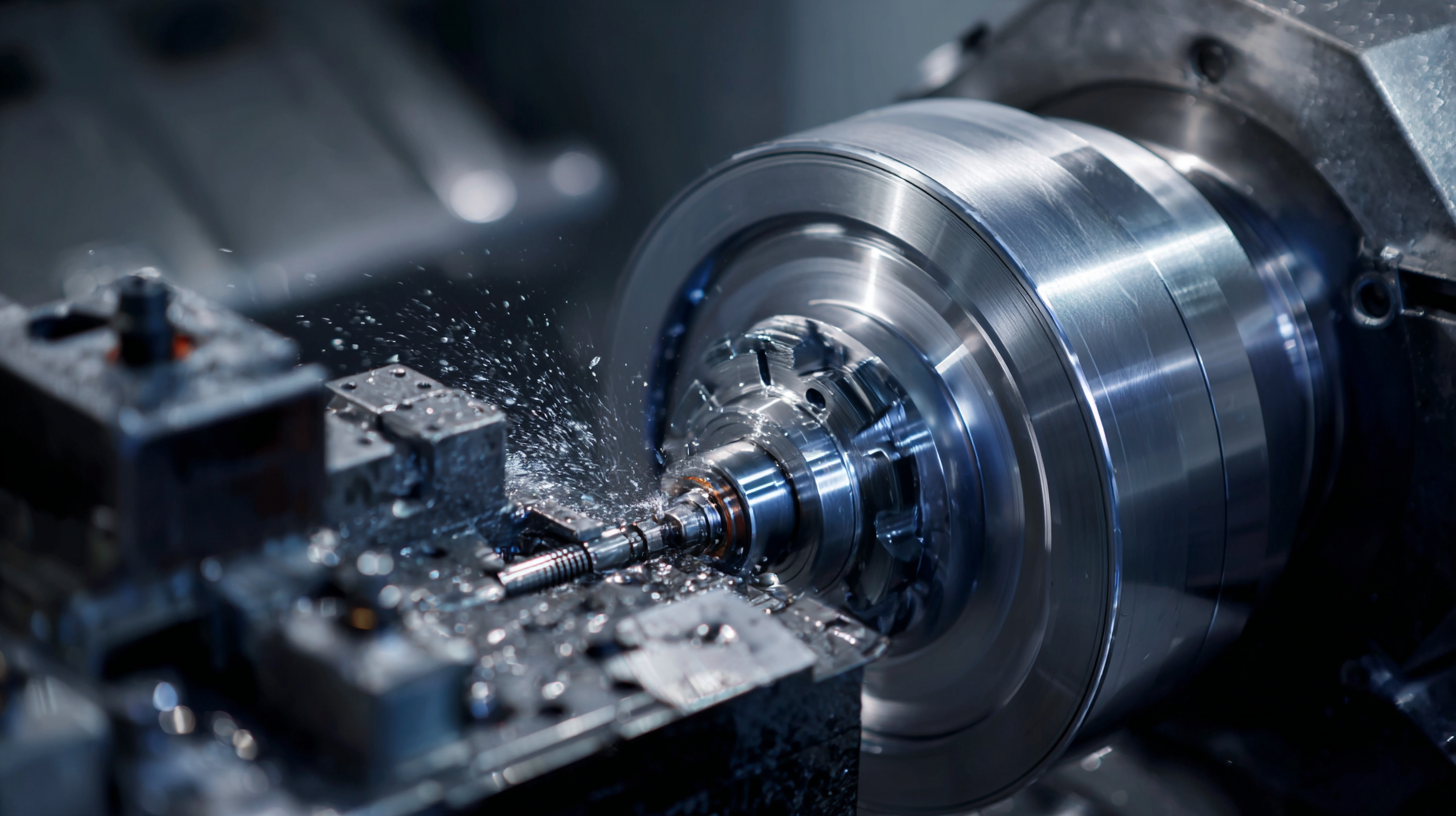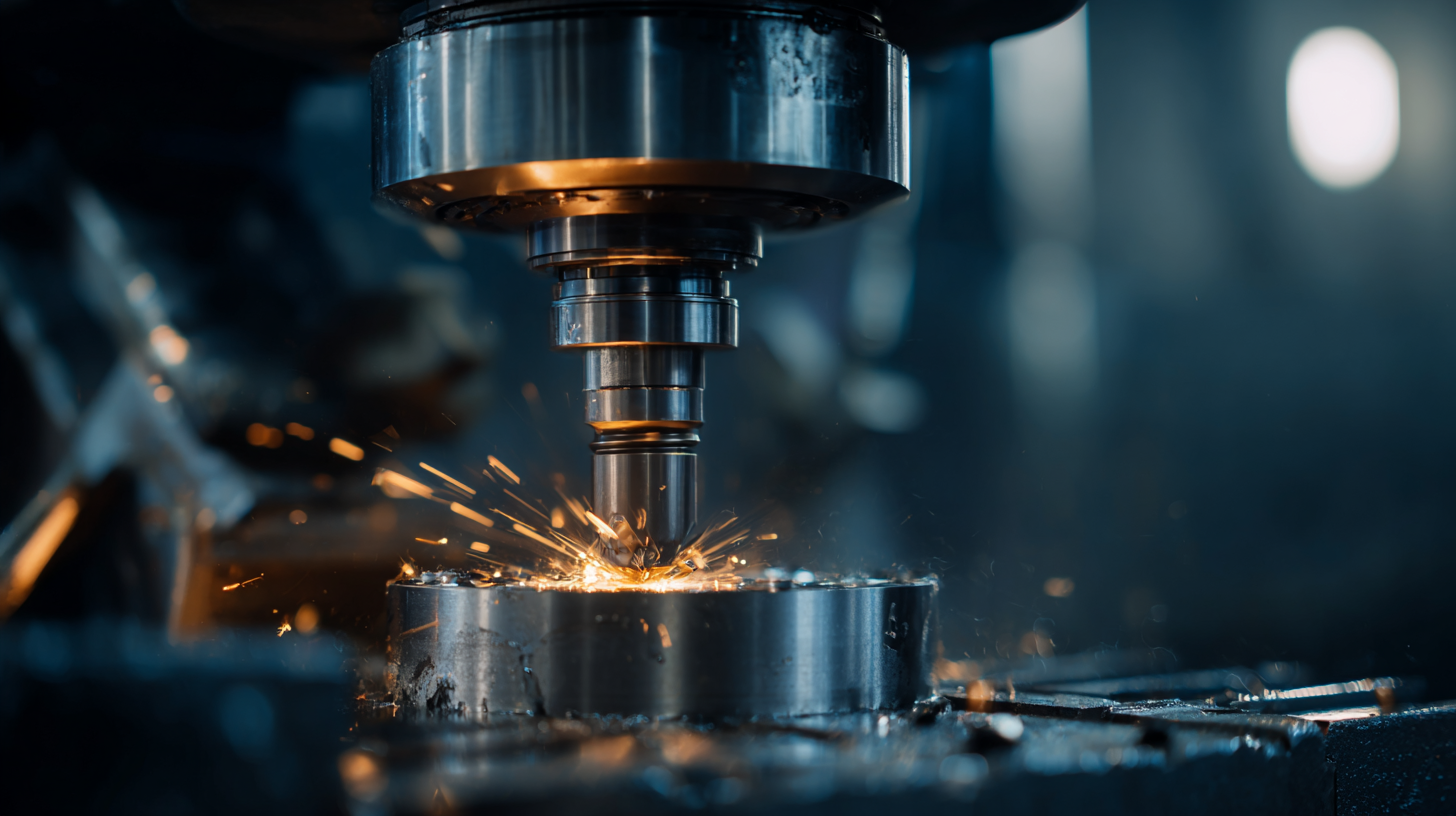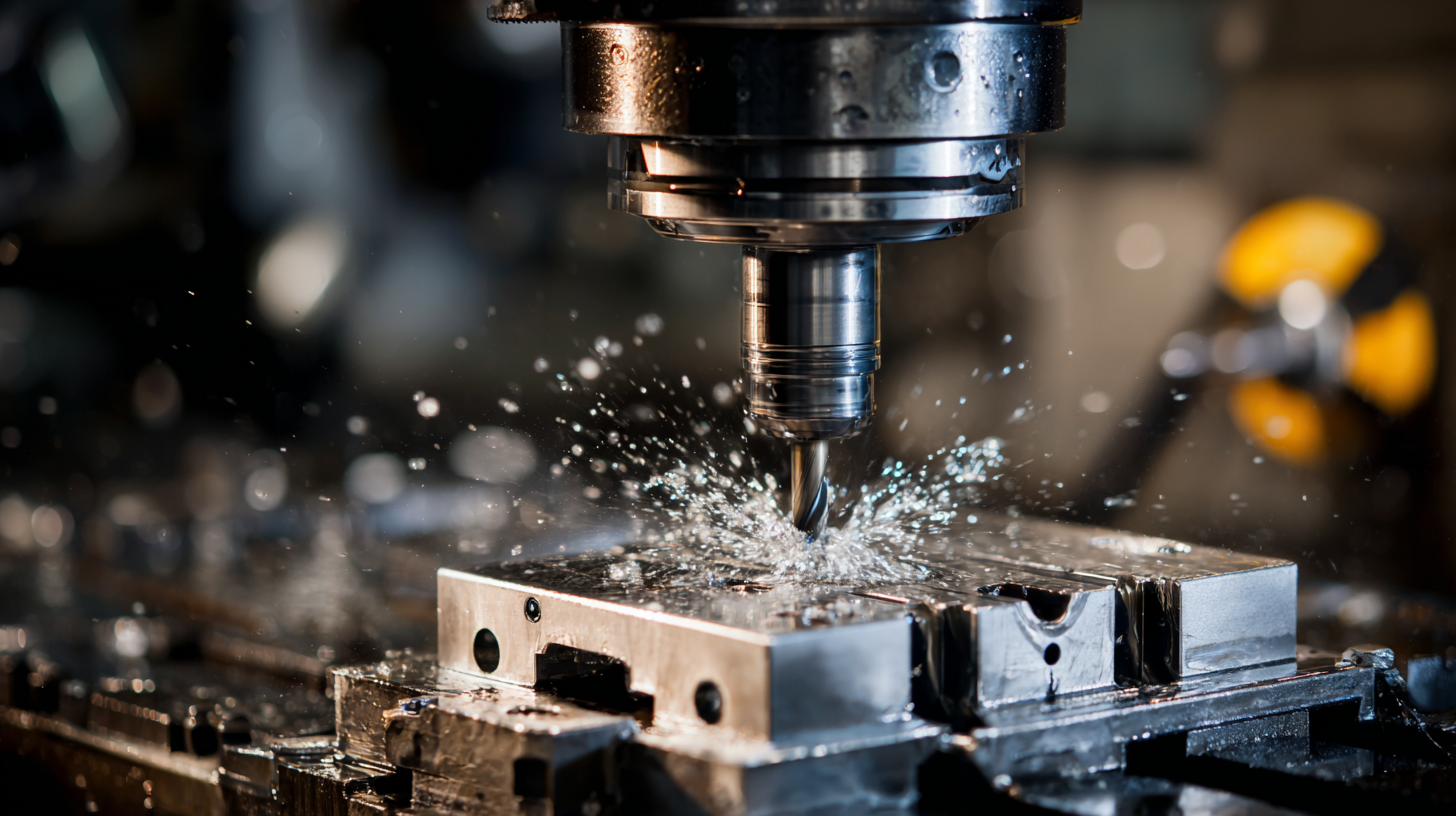920-726-4526
In today's rapidly evolving manufacturing landscape, the significance of choosing the right machining services cannot be overstated. The global machining market is anticipated to reach approximately $100 billion by 2026, driven by advancements in precision engineering and the increasing demand for custom components across various industries. This growth underscores the critical role that effective machining services play in enhancing productivity and reducing operational costs. As businesses strive to maintain a competitive edge, careful selection of machining services has become paramount.

This ultimate checklist aims to guide you through key considerations, such as technology capabilities, material handling expertise, and quality assurance practices, ensuring that your project is supported by the best machining services tailored to your specific needs.
When it comes to selecting reliable machining services for your project, there are several key factors to consider. First and foremost, assess the company’s experience and expertise in the specific type of machining you need. Look for service providers with a proven track record in your industry to ensure they understand the unique requirements of your project. Additionally, it’s beneficial to review their certifications and quality control processes, as these can significantly impact the results.
Tips: Always ask for referrals or customer testimonials to gauge the reliability of machining services. A company with a strong reputation will usually have positive feedback from past clients. Moreover, consider the technology and equipment used by the service provider. Utilizing the latest machining centers and tools not only enhances precision but also improves turnaround times, ultimately benefiting your project.
Another important factor is the flexibility of the service provider. Ensure they can accommodate changes to your project without compromising on quality or timelines. This adaptability is crucial in today’s fast-paced manufacturing environment, where project scopes can evolve unexpectedly. By keeping these considerations in mind, you can make an informed decision and choose the best machining service for your needs.
When selecting a machining service provider for your project, asking the right questions is crucial to ensure you partner with the best in the industry. Start by inquiring about their experience and expertise in your specific machining needs. Questions such as, “What types of materials do you typically work with?” or “Can you share examples of past projects similar to mine?” will provide insight into their capabilities and whether they can deliver the quality you require.

Next, consider the technology and equipment they use. It's important to understand, “What machining methods do you specialize in?” or “Do you invest in the latest technology and tools?” A provider that utilizes advanced machinery and techniques can often produce more precise, efficient, and cost-effective results. Additionally, don’t hesitate to ask about their quality control processes. Questions regarding how they ensure the accuracy and reliability of their machined parts will reveal their commitment to excellence and customer satisfaction.
 When selecting machining services for your project, it’s crucial to be vigilant about the quality indicators that can signal potential issues. One significant red flag to watch for is a lack of transparency in pricing and services offered. If a machining service is reluctant to provide clear quotes or details about their processes, it can indicate that they may not prioritize integrity or quality in their work. An honest provider should be able to clearly outline their pricing structure and the specific services included.
When selecting machining services for your project, it’s crucial to be vigilant about the quality indicators that can signal potential issues. One significant red flag to watch for is a lack of transparency in pricing and services offered. If a machining service is reluctant to provide clear quotes or details about their processes, it can indicate that they may not prioritize integrity or quality in their work. An honest provider should be able to clearly outline their pricing structure and the specific services included.
Another warning sign is poor communication. Effective collaboration is key in machining projects, and if a service provider is slow to respond or seems evasive in their answers, it could lead to misunderstandings or errors down the line. Additionally, if a company does not provide regular updates or progress reports during the machining process, it may reflect a lack of organization or care in their workflow. By keeping an eye out for these red flags, you can better ensure that you choose a machining service that will meet your project expectations.
In today's competitive manufacturing landscape, the importance of
customization and
flexibility in machining services cannot be overstated.
According to a recent report by the International Association of Machinists,
78% of companies that prioritize customized machining services see
improved operational efficiency and
increased customer satisfaction. Customization allows businesses to tailor their machining processes
to meet specific project requirements, enhancing product quality and performance.
Tip: When evaluating machining service providers, consider their
willingness to adapt to your unique specifications. A provider that offers a wide range of materials
and finishes can significantly impact the final outcome of your project.
Flexibility is equally crucial, especially in environments where market demands can change rapidly.
A study by the Manufacturing Institute found that manufacturers who leverage flexible machining services
can reduce lead times by up to 30%. This adaptability not only helps in
meeting deadlines but also enables businesses to pivot quickly in response to customer feedback
or market trends.
Tip: Always inquire about the production
capabilities of potential machining partners. Understanding their capacity to scale operations
or modify processes will ensure that your project remains on track, no matter how the
requirements shift.
When evaluating quotes and proposals from machining companies, one of the key best practices is to compare not only the pricing but also the comprehensiveness of the services offered. According to a recent report by SMEs (Society of Manufacturing Engineers), companies that prioritize a detailed analysis of proposals tend to reduce their project costs by up to 20%. It's essential to evaluate each proposal against your project requirements, ensuring that all aspects such as materials, lead times, and post-production services are clearly detailed.
Transparency in pricing should also be a cornerstone of your evaluation process. A survey by IndustryWeek indicated that nearly 60% of companies faced unexpected costs due to unclear or vague proposals from machining providers. It’s crucial to ask for itemized breakdowns of costs and clarify any terms that seem ambiguous. Additionally, consider the company’s experience and reputation—data from the National Tooling and Machining Association shows that projects managed by reputable firms have a 30% higher success rate in meeting deadlines and specifications.
By adopting these best practices, you will be better equipped to make informed decisions that enhance the efficiency and success of your machining projects.
5107 County Road C
Manitowoc, WI 54220
920-726-4526